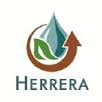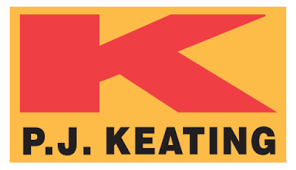News
Ft. Lewis College students receive $75K EPA award for water sampling project to better detect bacteria in surface waters
Mar 18, 2024
DURANGO, Colo. - The U.S. Environmental Protection Agency (EPA) awarded $75,000 to a team of Ft. Lewis College students for a water bacteria detection research project.
As part of EPA’s People, Prosperity and the Planet (P3) Program, the award will provide funding for the students to develop and validate a scientific system to rapidly detect specific waterborne bacteria from environmental water samples, known as an open-source Droplet Digital Polymerase Chain Reaction. The students will test water samples from the Animas River and communicate the importance of water resource protection to communities in the Four Corners area.
“Access to clean water is critical for protecting human health and the environment,” said KC Becker, EPA Regional Administrator. “Congratulations to these Fort Lewis College students, whose ground-breaking project develops innovative solutions to some of the most difficult water-quality challenges facing our region.”
This award is part of nearly $1.2 million in funding granted to 16 college student teams across the nation. The two-year project funding promotes hands-on experience, enabling students to turn their creative design and engineering ideas into reality, while helping solve real-world environmental challenges. Students will propose innovative and sustainable ideas and concepts and carry them through the research, design and demonstration stages. During the second year of the award, student teams will showcase their designs at EPA’s National Student Design Expo.
Teams from the following institutions are also receiving funding via EPA’s 20th Annual P3 awards:
-- Auburn University, Auburn, Alabama, for Biochar-Enabled Platform for Enhanced Destruction and Defluorination of Short-Chain Per- and Polyfluoroalkyl Substances (PFAS) in Water
-- Fashion Institute of Technology, New York, New York, for Developing Reusable and Antiviral Face Masks from Plastic Waste
-- Mercer University, Macon, Georgia, for Navigating the Food-Energy-Water Nexus through the Conversion of Food Waste to Biocrude
-- New Jersey Institute of Technology, Newark, New Jersey, for Two-dimensional Molybdenum Disulfide (MoS2)-Based Field Effect Transistor Sensors for Airborne PFAS Detection
-- New Jersey Institute of Technology, Newark, New Jersey, for Zirconium-modified Mica Coupled with Nanobubbles for Enhanced Phosphorus Removal, Recovery, and Reuse
-- Old Dominion University, Norfolk, Virginia, for Production of Lithium Carbonate from Geothermal Brine by Selective Extraction of Lithium Using a Novel Ion Sieve Method
-- Queens University of Charlotte, Charlotte, North Carolina, for Biodiesel Production from Ethanol and Glycerol: a Living Laboratory for STEM Students
-- The State University of New York at Binghamton, Binghamton, New York, for Sensor on Wheels (SOW): A Field-Deployable Environmental Pathogen Detection Tool
-- University of Central Florida, Orlando, Florida, for Solar-driven Photodegradation of Microcystin Using a Novel Gold-decorated Nickel Metalorganic Framework (Au/Ni-MOF)
-- University of Connecticut, Storrs, Connecticut, for 100% Compostable Packaging Film
-- University of Maryland, College Park, Maryland, for Enhancement of PFAS-Contaminated Organic Wastes Treatment in Anaerobic Digestion by Carbon Materials
-- University of Nevada, Reno, Nevada, for Understanding and Predicting Disparities in Organic Contaminant Levels in Blood among the U.S. Population
-- University of Tennessee, Knoxville, Tennessee, for Cellulose-Metal Organic Frameworks Hybrid Adsorbent for PFAS Removal from Water
-- Widener University, Chester, Pennsylvania, for Developing Geopolymer Cement using Sewage Sludge Ash as Precursors
-- Worcester Polytechnic Institute, Worcester, Massachusetts, for 3D-Printed Floating Photocatalyst Structures that Mimic Natural Objects to Combat Harmful Algal Blooms
More information about this year’s recipients, EPA’s P3 Program and the EPA National Student Design Expo Experience is available online.
EPA Contact: Valerie Doornbos, [email protected]
Ft. Lewis College Contact: Nardy Bickel; [email protected]
Downloadable Resouces









































































































